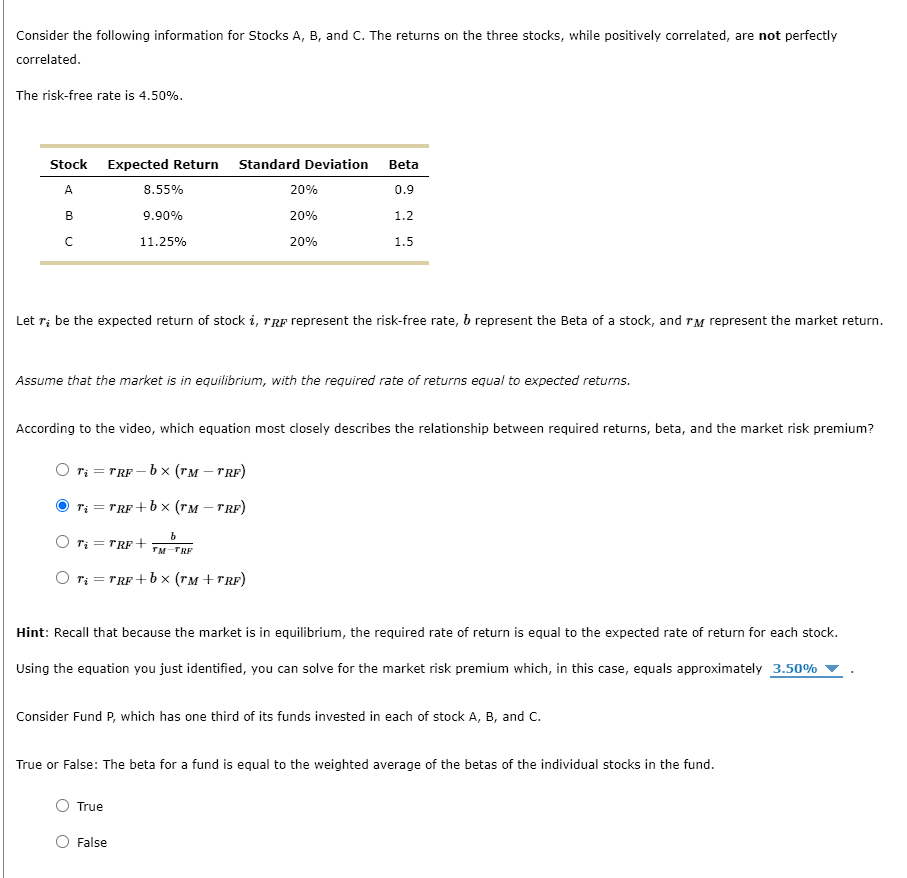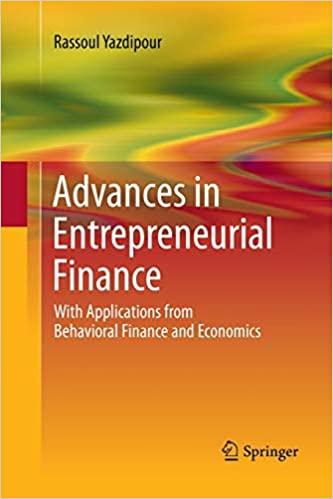Answered step by step
Verified Expert Solution
Question
1 Approved Answer
Consider the following information for Stocks A, B, and C. The returns on the three stocks, while positively correlated, are not perfectly correlated. The risk-free

Consider the following information for Stocks A, B, and C. The returns on the three stocks, while positively correlated, are not perfectly correlated. The risk-free rate is 4.50%. Let ri be the expected return of stock i,rRF represent the risk-free rate, b represent the Beta of a stock, and rM represent the market return. Assume that the market is in equilibrium, with the required rate of returns equal to expected returns. According to the video, which equation most closely describes the relationship between required returns, beta, and the market risk premium? riririri=rRFb(rMrRF)=rRF+b(rMrRF)=rRF+rMrRFb=rRF+b(rM+rRF) Hint: Recall that because the market is in equilibrium, the required rate of return is equal to the expected rate of return for Using the equation you just identified, you can solve for the market risk premium which, in this case, equals approximately Consider Fund P, which has one third of its funds invested in each of stock A,B, and C. True or False: The beta for a fund is equal to the weighted average of the betas of the individual stocks in the fund. True False Consider the following information for Stocks A, B, and C. The returns on the three stocks, while positively correlated, are not perfectly correlated. The risk-free rate is 4.50%. Let ri be the expected return of stock i,rRF represent the risk-free rate, b represent the Beta of a stock, and rM represent the market return. Assume that the market is in equilibrium, with the required rate of returns equal to expected returns. According to the video, which equation most closely describes the relationship between required returns, beta, and the market risk premium? riririri=rRFb(rMrRF)=rRF+b(rMrRF)=rRF+rMrRFb=rRF+b(rM+rRF) Hint: Recall that because the market is in equilibrium, the required rate of return is equal to the expected rate of return for Using the equation you just identified, you can solve for the market risk premium which, in this case, equals approximately Consider Fund P, which has one third of its funds invested in each of stock A,B, and C. True or False: The beta for a fund is equal to the weighted average of the betas of the individual stocks in the fund. True False
Step by Step Solution
There are 3 Steps involved in it
Step: 1

Get Instant Access to Expert-Tailored Solutions
See step-by-step solutions with expert insights and AI powered tools for academic success
Step: 2

Step: 3

Ace Your Homework with AI
Get the answers you need in no time with our AI-driven, step-by-step assistance
Get Started


